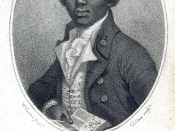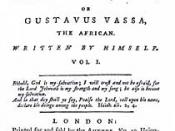Tilting the Balance The pursuit for supremacy exists throughout world history. In this pursuit also lies a destiny "ÃÂa duty"ÃÂ to expand into territories of feeble populations, and to civilize and colonize those peoples. Herbert Spencer used Darwin's famous statement in the late 1800s, "survival of the fittest,"ÃÂ to explain the differences between the strong and the weak, and he justified the dominance of superior beings over those inferior through their survival. Also in the late 1800s, Rudyard Kipling coined the statement, "white man's burden,"ÃÂ which described the duty of the superior white man to take imperial control over "sullen peoples, Half-devil and half-child."ÃÂ Those that were weaker were also sometimes known as savages and uncivilized. The wielding of supremacy over the weak is a prevalent theme in history that is evident in slavery, colonialism/imperialism and in the competition for power. Slavery is the exertion of white man's power over his inferior counterparts, the African slaves.
Colonialism is the duty of super powers to settle on lands of weaker peoples and exert domination over those peoples. In reading Olaudah Equiano's autobiography, he experiences two different kinds of slavery and notes the differences between being a slave in Africa and being a slave in the Americas. President Jefferson's two letters portrays two different motives of expanding into the territories of the Native Americans. Danilevsky's view of Russia is quite ironical because he has conflicting views about Russia's power and superiority. All documents show how power is inherent in the superiors and how this power is exerted over those that are weaker.
Olaudah Equiano had written his own biography of his experiences as both an African slave and an American slave. His story was published after he had purchased his freedom in 1766. He was a profound advocate of the antislavery...


